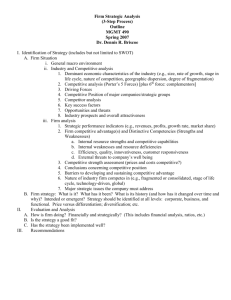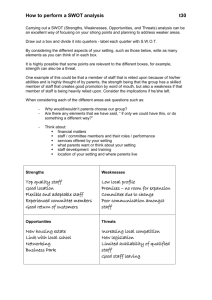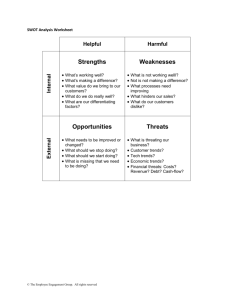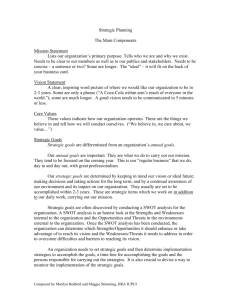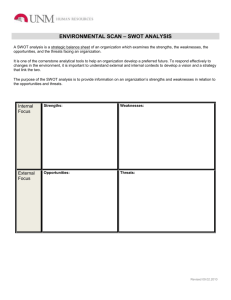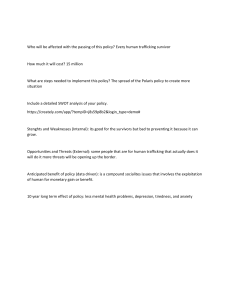A. Explain the nature of marketing plans. B. Explain the role of
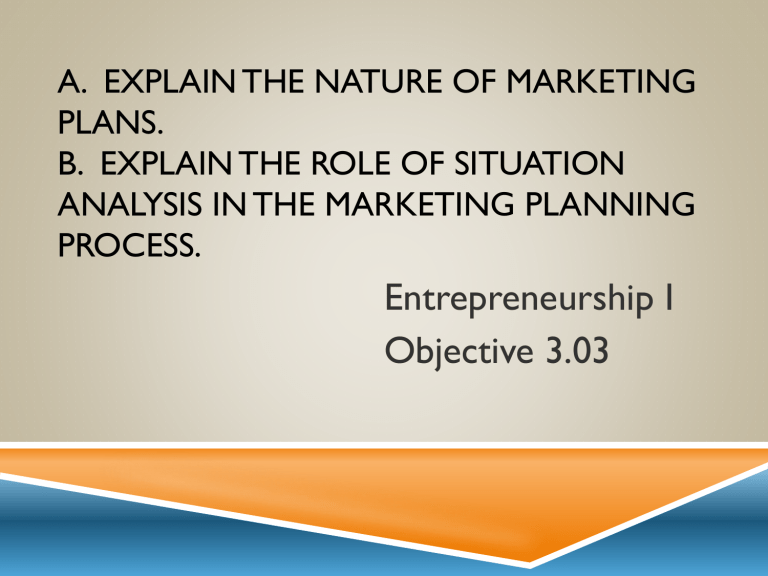
A. EXPLAIN THE NATURE OF MARKETING
PLANS.
B. EXPLAIN THE ROLE OF SITUATION
ANALYSIS IN THE MARKETING PLANNING
PROCESS.
Entrepreneurship I
Objective 3.03
MARKETING PLAN
A set of procedures or strategies for:
attracting the target customer to a business
Achieving marketing goals
THREE REASONS FOR MARKETING PLAN
1.
2.
3.
Part of overall business plan.
Demonstrates goals and strategies for upcoming year.
Demonstrate intentions for introducing a new product, entering a new target market, or trying a new marketing strategy.
BENEFITS OF A MARKETING PLAN
Avoid past mistakes
Better understand your target markets
Goal-setting
Plan marketing strategies
Obtain funding (bank loans, investors, etc.)
Provide Organizational direction
Track Overall Progress
COMPONENTS OF A MARKETING PLAN
Executive Summary
Mission Statement
Situation Analysis
SWOT Analysis (Strengths, Weakness, Opportunities, Threats)
Company questions:
What are the company’s overall goals?
Customer questions:
What are our customers buying?
COMPONENTS OF A MARKETING PLAN
Desired Target Market
What does our target market want and need?
How will our target market use this product?
How much will our target market be willing to pay for this product?
What message do we want our target market to hear from our marketing efforts?
Marketing Objectives
SMART— S pecific, M easurable, A chievable, R ealistic, and
T ime-bound.
COMPONENTS OF A MARKETING PLAN
Marketing Strategies and Programs
Communication methods
Financial Plans
Details on the expected expenses and profits of the plan’s programs.
Performance and Implementation
Expected Results
Appendix
Market Surveys
Product Photographs
BUSINESS THREATS
A competitor obtains funding for expansion.
Why a threat?
More product available
More efficient operations
Rising inflation rates
Why a threat?
Beyond your control. You must adjust your business practices to accommodate.


